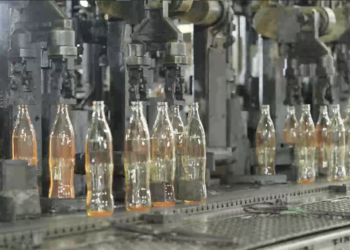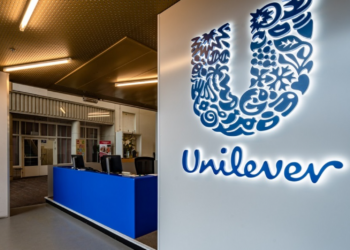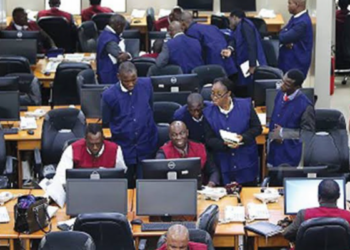- This post helps you understand the Share Reconstruction concept
- It cites relate-able examples on Share Reconstruction
- It links the subject matter to stock splitting
- Explains Reverse Stock Splitting
A Share Reconstruction otherwise known as a reverse stock split is a process whereby a company reduces the total number of outstanding shares it has by cancelling out shares it does not need. Unlike a Capital Reduction, a Share Reconstruction involves only shares and the cancellation of shares.
For example, a company with 1million shares of N1 each and trading for N2 per share may decide to contract the number of shares outstanding by 1 share for every 2 shares held. This means the number of shares held will be halved and the company will now have 500,000 shares of 2kobo each but now trading for N4 each.
As you can see the company’s market value remains unchanged.
Previously – One Million Units @ N2 = N1million
Now – 500,000 Units @ N4 = N1million

Other Examples of Reverse Stock Split
A reverse stock split may not always be a 1 for 2 as mentioned above . It could also be a 1 share for every 4 held or 1 share for every 10 held etc. It all depends on what the company is trying to achieve and the number of shares they need to cancel to achieve that. So let us look at those examples.
Previously – 1 million ordinary shares @ N2 each
A reverse stock split of 1 for every 4 held
Now – 250,000 ordinary shares @ N8 per share
 Previously – I million ordinary shares @ N2 each
Previously – I million ordinary shares @ N2 each
A reverse stock split of 1 for every 10 held
Now – 100,000 ordinary shares @N20 each.
The easiest way to calculate a reverse stock split yourself is to divide the current number of shares you currently own by the number that will be substituted for every 1 held (4 and 10 as in the example above).
[FIND OUT: What Is A Stock Split and How It Affects You]
Why Do Companies Undergo a Share Reconstruction (Reverse Stock Split)?
As mentioned above, a Share Reconstruction theoretically does not affect the market value of a stock as it is expected to remain the same. However, we do know that the value of shares is also mostly influenced by perception and sentiments. Companies recognize this and often can exploit this factor. Here are some reasons why companies undertake a share reconstruction scheme;
- To reduce number of shares outstanding – Some companies have billions of shares outstanding either due to some of mergers and acquisitions or issuance of bonus shares etc. This makes the shares of the company very liquid and by being very liquid the share price can be subjected to a lot of price movement. In Nigeria for example, following the banking consolidation of 2005-2008 a lot of banks had so many shares outstanding between 10billion to 20billion shares. A share reconstruction is often carried out to reduce this burden
- To increase the theoretical value of their share price – Some companies also embark on a scheme of Share Reconstruction when they think their share price is stagnant. For example, a company that is trading at 50kobo per share for too long may undertake a 1 for 2 share reconstruction which will reduce the number of shares outstanding by half and increase the share price to N1 per share. They do this in the hope that it will give the shares a sentimental booster.
- To attract investors – Some companies also carry out Share Reconstruction to attract investors. By reducing the number of shares outstanding investors the company may suddenly look attractive to investors. The fewer the number of shares outstanding the better more confident investors are about the value of the shares being easily controlled.
- To reduce cost – Share reconstruction also helps reduce the cost of maintaining a shareholder register as well as issuance of shares in future. The larger the quantum of shares a company has the more fees it is likely to pay to registrars of the company. A lot of shares can also hamper a companies future efforts to raise equity.
- To Issue Bonus Shares – As mentioned above Share reconstruction also give companies an opportunity to issue more shares in future. One of such is a bonus issue. A Company with 10billion outstanding shares for example may find it harder to issue a 1 for 1 bonus issue compared to that of a company with just 1billion outstanding shares.
 Does Share Reconstruction favour shareholders?
Does Share Reconstruction favour shareholders?
Despite the reasons given above a scheme of share reconstruction can most often quickly turn to a nightmare. The market may feel the fundamentals of the company is so weak they do not even apply any sentimental value towards the share reconstruction.
For example, if the company share price changed from 50kobo to N1 after a scheme of Share Reconstruction the market may still feel the value the company is worth less and price it less. Therefore the company can drop below N1 which in retrospect is theoretically lower than the 50 Kobe it was trading before the reverse split.
Example: ABC Ltd has 1million shares and currently trades at 50kobo per share. After a 1 for 2 reverse stock split the company shares was reduced to 500,000 at N1 per share. The market however, still feels the company’s result is not good enough and now prices the stock at N0.7 per share. Thus the value is now N350k instead of the N500 it was pre reverse stock split.
Therefore, had the company left its shares at 1million units of 50kobo share, whilst the share price may not move up it will remain at 50kobo per share which basically is the minimum of stocks quoted on the Nigerian Stock Exchange. The value would therefore had remained at N500k.
For public utility, here is our e-facility to help you calculate share reconstruction.
[ALSO READ: What Is A Stock Split and How It Affects You]
BEWARE: This article was earlier published in 2013 and has purposefully been revamped for public education –on July 30, 2019.





















